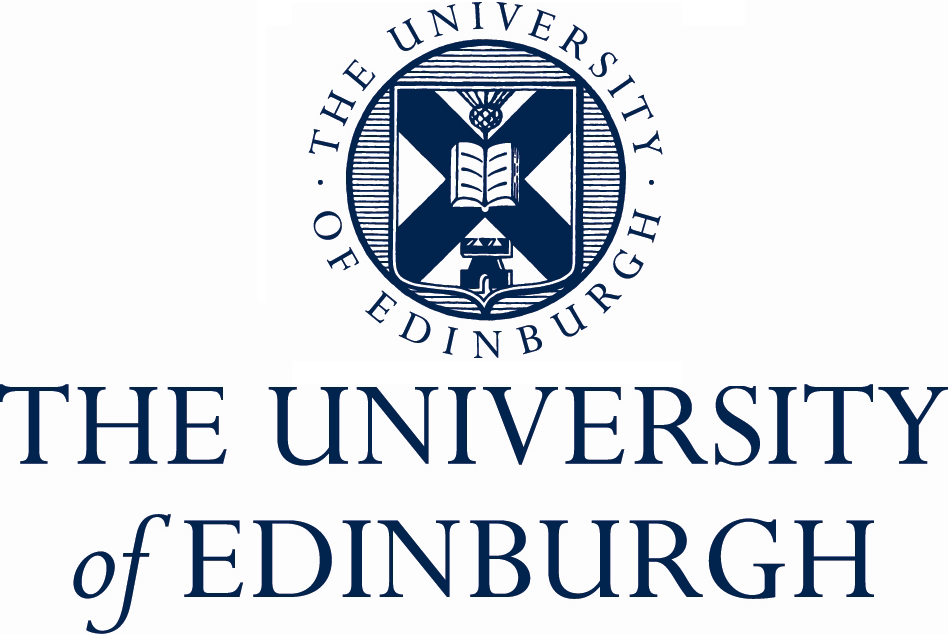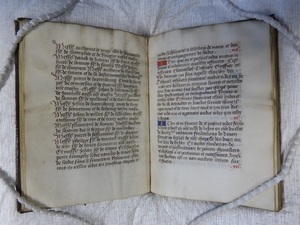Home University of Edinburgh Library Essentials
June 5, 2025
History of British Guiana 1922
Whilst systematically scanning early 1900’s theses, mostly on specific medical matters such as Insanity and Beri Beri, I came across a fascinating account of Guyana rural life in what was then known British Guiana, written in 1922 by a Mr. John F.C. Haslam (link to follow). Mr Haslam, who by his own admission, after being appointed to the Government Public Health Department of British Guiana, just 3 months later found himself as the Head of Department for the entire country.
Mr Haslam’s detailed account lays out this country’s unique geography and attempts to examine the population that inhabit this place and the various issues of housing, employment, sanitation and health that preoccupy him as Head of Public Health in 1922. Written very much from the British colonial viewpoint with a specific agenda of public health and accompanied with intriguing photographs, this theses provides an invaluable narrative and illuminates a particular time period in Guiana’s colonial past.
Mr Haslam notes from the beginning that it soon became apparent to him ‘that both the physical conditions of the country, the political constitution and social organisation of the people were peculiar if not unique’.
His first chapter entitled ‘The Country’ sets out specific facts regarding the landscape and makeup of the land. John Haslam is aware of the British’s population general ignorance of Guiana, being a far flung county, lying on the top right corner of the continent of South America, with a tropical climate lying 10 degrees of the equator, and often confused with Demerara which forms a third of the actual size of Guiana. The 2 rivers Demerara and Essequibo, which allowed for trading posts, fertile land, helped in the creation of the sugar plantations and provide testament to the Guiana’s history of colonisation initially by the Dutch and later the British, who gained control in 1831, right up until 1966. Guyana is still unique as it is the only country where English is the official language though the most commonly spoken language is Guyanese Creole.
Haslam, details the low lying nature of Guiana coastal areas and describes a very complex system of canals, trenches with some scattered attempts of control through damming and sluices such as the Koker, left over from the Dutch colonial times. Haslam’s vibrant description of the rainy season gives an impression of the difficulties face
‘the coast lands form a vast swamp in which cows may be seen up to their necks in water, grazing on water lilies, where lambs and pigs swim almost from birth and there are many homes accessible only by boat. At such times domestic animals, alligators and a boa constructor have been seen together on the public high road – the only dry place.’

Most of the townships and villages lie along the cultivated belt running just inland along the Atlantic coast and so these populations are faced with the challenges of the rainy season and constant flooding. In his descriptions of the inland jungle which to Haslam appears impenetrable you get a sense of the fear of the unknown, akin to Day of the Triffids…
’In truth there is something sinister about the rank and fleshy vegetation which in a few months will cover a neglected house or obliterate a clearing’
Written from his perspective as public health governor of Guiana under direct British colonial rule, the chapter titled simply ‘The People’ provides a gripping account of the different ethnic groups as itemised by the Census and included is a table of population figures starting with ‘The Europeans, other than Portuguese’, then ‘Portuguese, East Indian, Chinese, Blacks, Mixed, Aboriginal Indians’ and lastly ‘Not Stated’.

Haslam gives an intriguing commentary on these various ethnic groups making up this diverse population, starting with ‘the true natives’ of the country, the aboriginal Indians he possibly views most favourably who are ‘on the whole shy and retiring’ and ‘they would be pleasant to work among and teachable’. He states ‘ The Blacks of the Colony are of course quite as much foreigners as the whites’ while recognising the legacy of slavery and his interpretation of its effects.
‘After the abolition of slavery the negroes’ dislike of steady employment was very apparent. It is a racial characteristic that a man prefers working for himself for a pittance to earning good wages from an employer’
Diamond mining proved an attraction for many of these men in that it had the allure of possible wealth and independence from a traditional employer. Haslam finds ‘ there is a happy-go-lucky carelessness and a laughing indifference about the black people which make work among them pleasant if sometimes tantalising. However his frustration from a public health view point leaks through his discourse ‘the most discouraging factor to a sanitarian working among the negroes is that while they readily assume a veneer of civilisation – smart clothes, church going and politics – they have little instinct of tidiness or cleanliness, and a filthy mass of garbage under the kitchen window gives no qualms whatever to the housewife’. This chapter is filled with such observations sometimes prejudiced and often voiced in a tone that sounds decidedly out of place today, such as ‘love of children and family life and respect for age and education are factors which will maintain the East Indian people as a most important section of this colony’ however ‘the Portuguese are of more doubtful value to the country’.
Haslam obtains his figures from the last available Census in 1921 yet wrestles with the indeterminacy of the Census figures with its many interesting anomalies, for instance with the number of husbands and wives in 1911 ‘the former outnumbering the latter by 2,847’. The recording of age alone was a perpetual problem for the Census Commissioner with many relying on collective memories of definitive events such as ‘the cholera year’ or ‘the fire in Charlestown’ to provide a rough gauge of time.
He alludes to the missing figures of the ghostly aboriginal population who for colonial administrative purposes seem to constantly elude proper documentation. His lack of encounter with many aboriginal people is interesting as he states ’only a few have been drawn into the modern life of the colony, most ‘clinging to their tribal customs and primitive mode of life and withdrawing into their unexplored forests before the advance of civilisation’.
You get a real sense from reading this of the ‘‘huge sparsely occupied hinterland’ that forms most of Guiana, occupied by these unknown tribes and how it informs a large part of Haslam’s collective unconscious in his quest of ‘pioneer sanitary work’. Other details which grabbed my attention was his discussion of the ‘supernatural beliefs’ that still existed with the attentions of the ‘obeah man’ , a popular derivative of voodoo, that used a white “fowl cock” and even on occasion child sacrifice to fight off evil spirits and sickness.
Haslam goes on to study the occupations, housing, sanitiation, and health of various population types, providing compelling photoographs to illustrate his points


Although his observations belong to a very different era with a different world view they merit attention through his detailed recording of sanitation, housing, education and health and general living conditions, amongst all the different groups that found themselves living in this unique part of the world under colonialisation and still living the legacy of slavery. It is Haslam’s rich commentary often falling into casual asides and sarcasm while still maintaining a profound engagement that makes it so inviting to partake of this thesis and become immersed for a short time in this little known country from one man’s unique position.
Crowdsourcing Conservation at the CRC
In this week’s blog, Special Collections Conservator Emily, describes the highly successful crowdsourcing conservation event held in February at the CRC…
In February, we held our first ever conservation crowdsourcing event here at the CRC. Over a two-day period, with the help of 24 participants, we aimed to rehouse section II of the Laing manuscripts in acid-free folders and boxes. Laing’s collection of charters and other papers is the University’s most important manuscript collection. Highlights of the collections include letters by Kings and Queens of Scotland and England, poems in the hand of Robert Burns and early manuscripts in Gaelic and Middle Scots. You can find out more about the collection here. The collection was in poor condition due to its housing in unsuitable upright boxes and folders. It was difficult to access and there was a risk of further damage every time it is handled.

Laing II boxes on the shelf, before treatment
Nature Protocols – access back to vol.1

We have now extended our e-access to Nature Protocols back to Volume 1 (2006).
Nature Protocols is an online journal of laboratory protocols for bench researchers. Protocols are presented in a ‘recipe’ style providing step-by-step descriptions of procedures which users can take to the lab and immediately apply in their own research. Protocols on the site are fully searchable and organized into logical categories to be easily accessible to researchers.
Reading Music

The new exhibition in the Binks Trust display wall on the 6th floor of the Main University Library shows some of the fabulous items relating to music in our rare book, archive and musical instrument collections. Come and see some of the most important early modern books about musical instruments alongside volumes relating to musical life in 19th-century Edinburgh. Also on display are two company ledgers which help us to understand how musical instrument making firms operated.


23 May – 2 Aug 2017, University of Edinburgh Main Library (6th floor). Mon-Fri 9am-5pm.
Digitisation Strategy and Survey
The University of Edinburgh already provides access to a wide range of digital resources, but we want to increase the number of our own collections available in digital format.
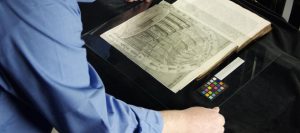
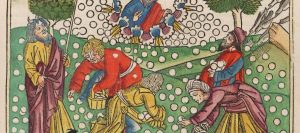
Webpages have been launched that detail what digitisation means for Library and University Collections, as well as case studies where digital content is currently being used for teaching, research, learning, community, culture, and business.
However, we want to find out more about what you want digitised and why. Please complete the 5 minute survey at https://edinburgh.onlinesurveys.ac.uk/digitisation-strategy
You can find out more about the consultation and existing digitisation work at http://www.ed.ac.uk/information-services/about/organisation/library-and-collections/strategy-planning/digitisation-strategy-consultation
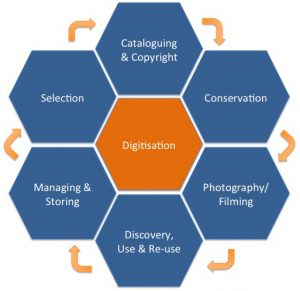
Claire Knowles on behalf of the, Library and University Collections, Digitisation Strategy Group
New Conservation Internship at the CRC
This week’s blog is written by our new conservation Intern, Holly, who is working on a collections rationalisation project within the rare books department…
I am now beginning my third week as an Intern here at the conservation studio, and thought I would take the time to briefly introduce myself and the project.
I am a current student at the University, studying for an MSc in Book History and Material Culture. The opportunities provided through this degree since it’s commencement in September have allowed me to realise fully a long-held belief in the irreplaceable importance of cultural heritage, and I soon wanted to get involved and gain experience in the field of conservation. As such, I have been a volunteer in the conservation studio since January, and when the advert for this internship was brought to my attention, I jumped at the chance.

Holly working in the studio
New Look and Feel for DiscoverEd!
On Tuesday 4th July 2017 the Library rolled out a new look and feel for DiscoverEd, our online discovery service. This means there’s a new improved mobile responsive interface, so you can use DiscoverEd easily on a range of devices including tablets and phones. It is also now easier to navigate.
The core functionality of DiscoverEd has not changed. Users are still be able to search the same extensive range of resources, view online resources, access their account details, renew loans, place requests, pay fines and access the same range of functions offered by the previous version of DiscoverEd.
Search results are displayed as before, with options for refining them. However, the screen has greater readability across a range of devices, and easier access to useful functions:

What’s new?
Options for saving and exporting are now easily accessible from the list of search results:

The full details and links for each item on your results list are now conveniently displayed on a single page:

The My Account area has been enhanced and now provides a useful overview page, which allows you to review your account information at a glance:

e-Shelf has been replaced with My Favourites. When you are signed in to DiscoverEd you can easily add items to your saved records list in My Favourites by clicking the Pin icon.

You can organise your list of saved records in My Favourites by adding descriptive labels:

The Queries section in the old DiscoverEd, which allowed you to save queries and set up alerts, has been replaced by the SAVED SEARCHES section in My Favourites.
IMPORTANT: Please note that any saved queries you have in the old DiscoverEd ARE NOT be available in the new interface. Instead you will need to run these searches again in the new interface and then save each of them as a saved search in My Favourites.

2 and 3D Photography: Practice, Prophecies, and Beyond- Conference at the Rijksmuseum

Team DIU (well, half of it!) have been visiting the Rijksmuseum again for the biennial conference on 2 and 3D photography. 2 full days of speakers followed by another workshop day left us with lots to think about. This year’s conference built on the last, Robert Erdmann released the open source code for his amazing curtain viewer which can be tried out in the Bosh Project here http://boschproject.org/#/ . Malcolm is going to delve deeper in to Erdmann’s latest developments below. Otherwise 3D technology seems to be taking root, with debate over the level of quality and detail needed, and advances such as ‘videogrammetry’ and ‘unstructured light field renderings’ (see below) entering the fray.
Free access to optional contents of JapanKnowledge
The following contents will temporarily be accessible on the JapanKnowledge platform between 1 June and 30 June 2017:
1. Encyclopedia of Japanese Historical Place Names http://japanknowledge.com/en/contents/rekishi/index.html

2. Fuzoku Gaho http://japanknowledge.com/en/contents/fuzokugaho/index.html

3. Oriental Economist http://japanknowledge.com/en/contents/orientaleconomist/index.html

Please contact shenxiao.tong@ed.ac.uk if you have any feedback.
When size matters : big books
A really good question was asked by one of our student interns recently about the rare books collections they were working with : “Why are the big books so big?”. This set me thinking about the size of the books in our Special Collections, big and small, and why size matters.
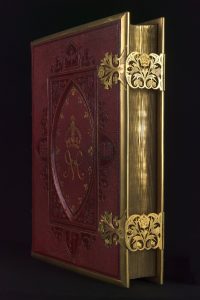
[Bible. Authorized version]. The Holy Bible : containing the Old and New Testaments … Glasgow ; Edinburgh ; London : Printed and published by William Mackenzie ; 1862-1863. New College Library B.r.302a-b
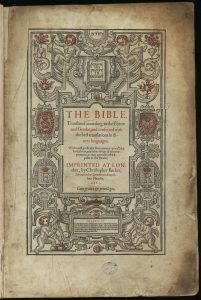
The Bible: translated according to the Ebrew and Greeke, and conferred with the best translations in diuers languages. London: Christopher Barker, 1583. B.r.33/1
Alongside this book, in our early Bibles collection we have several examples of pulpit Bibles such as this Geneva Bible used as the pulpit Bible in Crail, Fife. Traditionally Presbyterian churches in Scotland had a centrally located pulpit, reflecting the importance of the Bible as the foundation of faith. The large size of the book is part of its role as an object used in public worship.
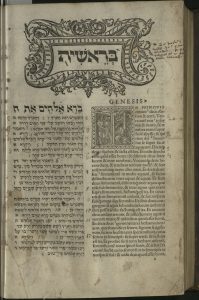
Mikdash yeyai, ʻesrim ve-ʾarbʻa sefare ha-mikhtav ha-ḳadosh = En tibi lector Hebraica Biblia. Basel, 1534. LP4/2.10
In fact many of the largest books in our rare book collections are Bibles, and this is no surprise considering that the Bible is a very large amount of text, which requires a large book to fit it all in. This is even more the case for polyglot Bibles, which offer parallel versions of the text in different languages such as Latin, Hebrew and Greek, or for Bible versions that include commentary parallel with the text. In the recently catalogued LP section, this folio edition of the complete Hebrew Bible, with Latin translation, and Latin commentary drawn from Rabbinic sources, is one of the greatest Christian Hebraists of the sixteenth century, Sebastian Münster. This Bible was highly valued by 16th century Christian students of the Hebrew language and the Hebrew Scriptures, and is likely to have been among the resources used by Luther in preparing his Genesis lectures (1535-1545), his last major work.
Christine Love-Rodgers, Academic Support Librarian
With thanks to Janice Gailani, Rare Books Cataloguer.
Collections
 Archival Provenance Project: Emily’s finds
My name is Emily, and I’m the second of the two archive interns that...
Archival Provenance Project: Emily’s finds
My name is Emily, and I’m the second of the two archive interns that...
 Archival Provenance Project: a glimpse into the university’s history through some of its oldest manuscripts
My name is Madeleine Reynolds, a fourth year PhD candidate in History of Art....
Archival Provenance Project: a glimpse into the university’s history through some of its oldest manuscripts
My name is Madeleine Reynolds, a fourth year PhD candidate in History of Art....
Projects
 Documentation Challenges in Practice: Art Collection Barcoding Project
In this week’s blog, our Art Collection Documentation Assistant Gaby Cortes discusses some of the...
Documentation Challenges in Practice: Art Collection Barcoding Project
In this week’s blog, our Art Collection Documentation Assistant Gaby Cortes discusses some of the...
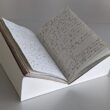 Sustainable Exhibition Making: Recyclable Book Cradles
In this post, our Technician, Robyn Rogers, discusses the recyclable book cradles she has developed...
Sustainable Exhibition Making: Recyclable Book Cradles
In this post, our Technician, Robyn Rogers, discusses the recyclable book cradles she has developed...

